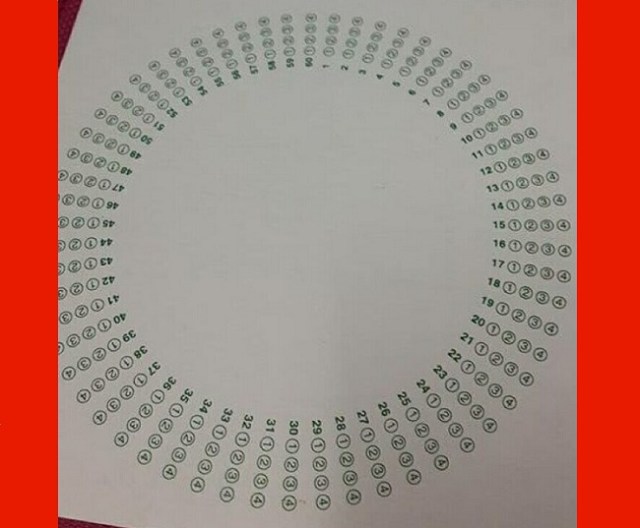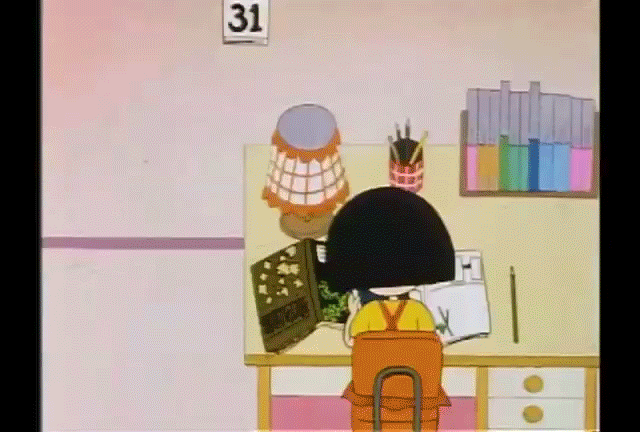cheating
The least-faithful prefecture in the survey is often laughed at for being uncool, but responding residents seem to be plenty popular.
Video claims “just a single question” is all it takes to catch an unfaithful boyfriend or girlfriend in a lie, but it may have other consequences.
Single men in their 30s least likely to be fooling around, but it’s a very different story for the older guys.
Relationship is derailed as rail geek girl uses her amazing powers of deduction to catch her boyfriend in a lie.
Respondents also discuss whether it’s cheating on your boyfriend if you hug or hold hands with someone else.
If it sounds too good to be true, it probably is, but this tale of deception has a double-twist ending.
What better way to convince your spouse to stop cheating than by hiring a “friend” to tell them to quit?
When discussing the gut-wrenching question, Japanese man looks outside the box…and into the heart of darkness.
Some harsh truths about cheating are served up in this brutally honest street interview video.
Where do women in their 20s and 30s draw the line?
Multiple choice tests were already annoying enough; let’s see the Scantron machine scan this answer sheet.
Video games have the power to change people’s lives, inspiring creativity and bringing friends and couples together.
But they can also destroy relationships. And it turns out that even Splatoon, the cute, brightly colored squid-themed shooter from Nintendo, is a culprit—although not quite in the way you might be thinking…
It would be every adulterous man’s worst nightmare to wake up to find out that both of his girlfriends not only crossed paths, but realized his infidelity at the exact same time. But that’s nothing compared to what one Chinese man – whom we’ve dubbed “The Master of Cheating” – probably went through after all 17 of his girlfriends got wind of his antics simultaneously.
There’s a list of the “five best ways to check if your man is cheating on you” that resurfaces every now and again on Japanese matome and magazine sites. If you’re harbouring doubts about your man’s fidelity, you’re supposed to watch how he responds when you try out one of these five awesome tricks (spoiler alert: like many things in life, they’re not that awesome).
After we’d gotten over our disappointment that none of the suggestions involve hidden cameras or going out undercover in a big coat and fake nose, we started to wonder where these ideas had come from. We did a bit of digging, and it turns out this “top five” first appeared a few years ago on the Japanese variety TV show Honma Dekka!?, in a segment with marketing expert Megumi Ushikubo and clinical psychologist Rie Ueki.
The following is a typical scene that many families in Japan will have recently experienced, and probably not for the first time: It’s August 31, the last day of summer vacation and the fall semester is starting in less than 24 hours. The kids who played all month suddenly realize that they have to do 40 pages of kanji and math drills, write a book report for a book they haven’t read, and fill in 30 days’ worth of journal entries–an assignment that they dutifully kept up with for all of the first week of summer break. They clamor for help, and despite the scoldings and I-told-you-so’s, “nice” parents and the more responsible siblings reluctantly pitch in.
Sure, the above isn’t an exemplary approach to avoiding bad grades, but recently an even more dubious method has been getting a lot of attention: online businesses have been offering to do your child’s homework and school projects for a fee! While the homework-by-proxy racket is nothing new, recent media coverage of the growing enterprise has brought to light this questionable practice and its appalling popularity among elementary and junior high school students.
What does this teach, and not teach, future adults? Why are parents taking advantage of these services for their young children? One twisted reason will probably surprise you.


















 Starbucks Japan unveils new sakura cherry blossom collection for hanami season 2026
Starbucks Japan unveils new sakura cherry blossom collection for hanami season 2026 One Piece creator has hidden secret of anime treasure’s identity in chest at bottom of real-world ocean
One Piece creator has hidden secret of anime treasure’s identity in chest at bottom of real-world ocean 【Fail】World’s Tallest Broadcast Tower Tokyo Sky Tree Experiences Unexpected Radio Interference, Tokyo Tower Still Chugging On
【Fail】World’s Tallest Broadcast Tower Tokyo Sky Tree Experiences Unexpected Radio Interference, Tokyo Tower Still Chugging On Live-action One Piece’s Luffy teaches Sesame Street’s Elmo a Japanese word for friendship[Video]
Live-action One Piece’s Luffy teaches Sesame Street’s Elmo a Japanese word for friendship[Video] Is Tokyo Station’s startlingly expensive wagyu bento boxed lunch worth its high price?[Taste test]
Is Tokyo Station’s startlingly expensive wagyu bento boxed lunch worth its high price?[Taste test] Japanese star’s makeup transformation goes viral online 【Videos】
Japanese star’s makeup transformation goes viral online 【Videos】 Real-life Spirited Away train line found in Japan?
Real-life Spirited Away train line found in Japan? Clever and cute cat keyhole bra is only one-fourth of lingerie set’s feline charms 【Photos】
Clever and cute cat keyhole bra is only one-fourth of lingerie set’s feline charms 【Photos】 Princesses, fruits, and blacksmiths: Study reveals the 30 most unusual family names in Japan
Princesses, fruits, and blacksmiths: Study reveals the 30 most unusual family names in Japan Starbucks Japan releases new Stanley bottles and exclusive drinkware at Reserve Roastery Tokyo
Starbucks Japan releases new Stanley bottles and exclusive drinkware at Reserve Roastery Tokyo Starbucks Japan releases first-ever Hinamatsuri Girls’ Day Frappuccino
Starbucks Japan releases first-ever Hinamatsuri Girls’ Day Frappuccino Japanese restaurant chain serves Dragon Ball donuts and Senzu Beans this spring
Japanese restaurant chain serves Dragon Ball donuts and Senzu Beans this spring Japan Extreme Budget Travel! A trip from Tokyo to Izumo for just 30,000 yen [Part 1]
Japan Extreme Budget Travel! A trip from Tokyo to Izumo for just 30,000 yen [Part 1] Japan’s craziest burger chain takes menchi katsu to new extreme levels
Japan’s craziest burger chain takes menchi katsu to new extreme levels Japan Extreme Budget Travel! A trip from Tokyo to Izumo for just 30,000 yen [Part 2]
Japan Extreme Budget Travel! A trip from Tokyo to Izumo for just 30,000 yen [Part 2] Japanese drugstore sells onigiri at pre-stupid era prices, but how do they compare to 7-Eleven?
Japanese drugstore sells onigiri at pre-stupid era prices, but how do they compare to 7-Eleven? Viral Japanese cheesecake from Osaka has a lesser known rival called Aunt Wanda
Viral Japanese cheesecake from Osaka has a lesser known rival called Aunt Wanda Lawson adds doughnuts to its convenience store sweets range, but are they good enough to go viral?
Lawson adds doughnuts to its convenience store sweets range, but are they good enough to go viral? Japan’s newest Shinkansen has no seats…or passengers [Video]
Japan’s newest Shinkansen has no seats…or passengers [Video] Starbucks Japan releases new sakura goods and drinkware for cherry blossom season 2026
Starbucks Japan releases new sakura goods and drinkware for cherry blossom season 2026 Foreigners accounting for over 80 percent of off-course skiers needing rescue in Japan’s Hokkaido
Foreigners accounting for over 80 percent of off-course skiers needing rescue in Japan’s Hokkaido Super-salty pizza sends six kids to the hospital in Japan, linguistics blamed
Super-salty pizza sends six kids to the hospital in Japan, linguistics blamed Starbucks Japan unveils new sakura Frappuccino for cherry blossom season 2026
Starbucks Japan unveils new sakura Frappuccino for cherry blossom season 2026 Foreign tourists in Japan will get free Shinkansen tickets to promote regional tourism
Foreign tourists in Japan will get free Shinkansen tickets to promote regional tourism The 10 most annoying things foreign tourists do on Japanese trains, according to locals
The 10 most annoying things foreign tourists do on Japanese trains, according to locals Take a trip to Japan’s Dododo Land, the most irritating place on Earth
Take a trip to Japan’s Dododo Land, the most irritating place on Earth Naruto and Converse team up for new line of shinobi sneakers[Photos]
Naruto and Converse team up for new line of shinobi sneakers[Photos] Survey asks foreign tourists what bothered them in Japan, more than half gave same answer
Survey asks foreign tourists what bothered them in Japan, more than half gave same answer Japan’s human washing machines will go on sale to general public, demos to be held in Tokyo
Japan’s human washing machines will go on sale to general public, demos to be held in Tokyo Starbucks Japan releases new drinkware and goods for Valentine’s Day
Starbucks Japan releases new drinkware and goods for Valentine’s Day We deeply regret going into this tunnel on our walk in the mountains of Japan
We deeply regret going into this tunnel on our walk in the mountains of Japan Studio Ghibli releases Kodama forest spirits from Princess Mononoke to light up your home
Studio Ghibli releases Kodama forest spirits from Princess Mononoke to light up your home Major Japanese hotel chain says reservations via overseas booking sites may not be valid
Major Japanese hotel chain says reservations via overseas booking sites may not be valid Put sesame oil in your coffee? Japanese maker says it’s the best way to start your day【Taste test】
Put sesame oil in your coffee? Japanese maker says it’s the best way to start your day【Taste test】 No more using real katana for tourism activities, Japan’s National Police Agency says
No more using real katana for tourism activities, Japan’s National Police Agency says Japanese star’s makeup transformation goes viral online 【Videos】
Japanese star’s makeup transformation goes viral online 【Videos】 Real-life Spirited Away train line found in Japan?
Real-life Spirited Away train line found in Japan? Clever and cute cat keyhole bra is only one-fourth of lingerie set’s feline charms 【Photos】
Clever and cute cat keyhole bra is only one-fourth of lingerie set’s feline charms 【Photos】 Princesses, fruits, and blacksmiths: Study reveals the 30 most unusual family names in Japan
Princesses, fruits, and blacksmiths: Study reveals the 30 most unusual family names in Japan Starbucks Japan releases new Stanley bottles and exclusive drinkware at Reserve Roastery Tokyo
Starbucks Japan releases new Stanley bottles and exclusive drinkware at Reserve Roastery Tokyo Capsule hotel inside Narita Airport is like a futuristic spaceship
Capsule hotel inside Narita Airport is like a futuristic spaceship Japanese restaurant chain serves Dragon Ball donuts and Senzu Beans this spring
Japanese restaurant chain serves Dragon Ball donuts and Senzu Beans this spring Japanese horror icon Sadako collaborates with Snickers in yummy commercial!
Japanese horror icon Sadako collaborates with Snickers in yummy commercial! Taste-testing Japan’s real-world Dragon Balls and Senzu Beans at Marugame Seimen
Taste-testing Japan’s real-world Dragon Balls and Senzu Beans at Marugame Seimen Japan’s kid-friendly ski program is now selling Pikachu snowboards for a limited time only
Japan’s kid-friendly ski program is now selling Pikachu snowboards for a limited time only Man overjoyed as woman who crashed into his car turns out to be AV star Maria Ozawa【Video】
Man overjoyed as woman who crashed into his car turns out to be AV star Maria Ozawa【Video】 Real-life Olaf takes Twitter by (snow)storm
Real-life Olaf takes Twitter by (snow)storm Drift ice in Japan is a disappearing winter miracle you need to see now
Drift ice in Japan is a disappearing winter miracle you need to see now